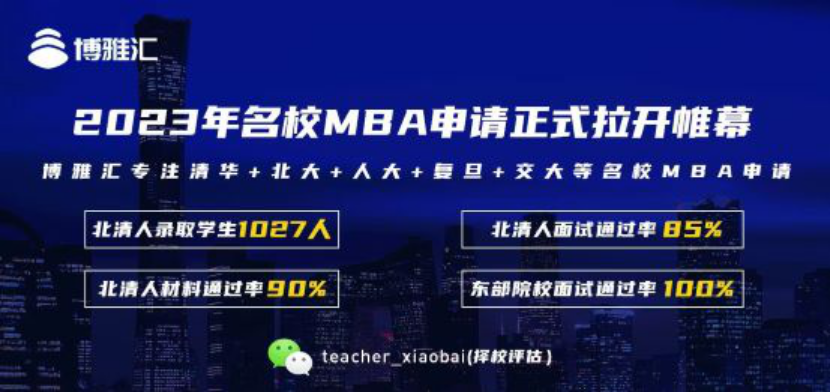2016年1月25日,英国《金融时报》(FT)一年一度的全球MBA排名发布,复旦MBA项目连续四年荣登全球百强。复旦管院陆雄文院长应邀为本期《FT商业教育专刊》【院长专栏】栏目撰稿,梳理和总结了学院校友、全球最大的银行——中国工商银行董事长姜建清的管理思想和智慧。
November 30 2015 was an exciting moment in China’s financial history, with the renminbi joining the International Monetary Fund’s elite Special Drawing Rights basket of reserve currencies.
This was a milestone in the integration of China into the international financial system. It also brought to my mind Jiang Jianqing, chairman of Industrial and Commercial Bank of China, the world’s biggest commercial bank by market capitalisation. One of the most respected bankers in China, he was an early advocate of the internationalisation of the renminbi. Unusually for someone in his position, he also possesses a powerful entrepreneurial spirit.
I first met Jiang a decade ago when the School of Management at Fudan University and the University of Hong Kong launched the second class of a joint MBA for senior ICBC executives. He joined the participants for the opening ceremony. Friendly and easygoing, he was not how people would imagine a senior official to be. I was impressed by his understanding of business education and talent development.
Jiang’s relationship with Fudan began in 1995, when he took part in the first executive development programme of Shanghai cadres. His classmates included government officials and top executives from state-owned enterprises. He stays in touch and exchanges ideas with his peers. I have had the chance to join such talks and hear his analysis of China’s economy and financial reforms.
As a customer of ICBC, I have also seen it leap ahead in service quality and innovation in the past decade.
Most Chinese MBA graduates aim to be professional managers. Sometimes they find it difficult to make breakthroughs working within outdated business models. Entrepreneurs, on the other hand, tend to be visionary and self-motivated, thinking out of the box and taking the lead in reform and innovation.
Top executives of state-owned enterprises such as ICBC are also government officials in their political status. Those who risk their career with changes or innovations are often offbeat and regarded as “strangers”. Jiang is one of these “strangers”, a banker with visionary insight and an innovative spirit. Under his leadership, ICBC has been transformed.
Internet banking has changed the nature of the sector. Risk management has been stepped up. There have been acquisitions of overseas commercial banks and other financial institutions. He established a new system centred on a culture of “profit, quality, development, management and innovation”. This fundamentally reshaped the business model of state-owned banks, which focus on scale and market share.
Jiang pays unusual attention to management. In his eyes, a bank is like a “delicate instrument” and management is key to its smooth operation. Running a bank is like running a marathon — one needs strength, focus, endurance and speed. Applause in the middle means nothing.
Under his leadership, ICBC has improved governance and developed performance-based appraisal. He streamlined both structure and scale and shifted the business model from being sales-orientated to customer-driven.
Jiang understands the importance of talent management. ICBC has set up training centres across China and at its headquarters. Graduates of the Fudan-HKU MBA are given a further two years of coaching. Meanwhile, a large-scale personnel development project was launched, which includes sending core staff to study or do internships abroad.
An entrepreneur with a global perspective, Jiang was aware from early on of the need to reform ICBC into an internationally competitive bank. His internationalisation strategy has helped the bank to deploy resources globally, reduce financial risk, resist the economic downturn, explore opportunities abroad and develop its brand.
Under Jiang, ICBC has grown into the world’s largest lender by market capitalisation, with 400 branches and offices in 42 countries and territories and 14,000 employees abroad, only 900 of whom are from China. There are four main components to the internationalisation of enterprises: learning from international experiences; following international standards; benchmarking international leaders; and attracting international talents. Jiang has achieved all these.
It is rare that a professional banker can also be an entrepreneur. Jiang is one such exception — both a revolutionary against the outdated mechanism of the state-owned enterprise and a leader bringing a local bank to the global stage.
12月1日,国际货币基金组织(IMF)决定将人民币纳入特别提款权(SDR)货币篮子。在中国,许多人深感振奋,这让我立马想到了我们学院的一位校友——全球最大的银行——中国工商银行董事长姜建清,他是中国最早力主人民币要国际化的几位银行家之一。
我和姜第一次见面是十一年前,我院与中国工商银行总行合作的高级管理人员专业能力培训班开班,参加的学员都是工行总部高管或各省分行行长。当时姜建清是中国工商银行行长,他也到场与大家合影、交流。作为全球知名的银行家,他言谈举止之间十分随和,他的下属们很愿意同他谈话,对他也很尊敬,很钦佩。在和他的交谈中,我深切感受到他对学位教育和人才培养的重视。同许多跨国公司和大银行一样,工行在各地也设有几个培训基地。此外,他还设立了与人力资源部并行的教育部,统领全行的管理人员教育和培训。
早在1995年,姜建清就曾作为第一期上海市管理干部高级培训班的学员来到复旦大学管理学院进修。与他同一班的同学可谓星光闪耀,包括现在的上海市人大主任殷一璀、宝钢集团董事长徐乐江、上海汽车集团前董事长胡茂元、上海建工集团前董事长蒋志权等。
他经常会和大家分享自己对中国金融改革、中国经济发展等诸多问题的看法。我觉得他对全球性趋势和挑战的把握很敏锐,很多预测事后都会得到验证。当然,我自己也是中国工商银行的客户,近十年来中国工商银行服务质量有明显提升、服务产品也日趋丰富,这让我对中国工商银行的发展有了特别的兴趣和持久的关注。
在中国,商学院毕业的学生大多成为了职业经理人,我院毕业生七成以上加入了外资企业,少部分加入了国有企业,他们虽然都有很好的职业成就,但是通常会受限于一个治理框架或职能范围,面对挑战和过时的体制约束,往往难以作为。企业家对于他所从事的事业有愿景、有自我驱动力。他们不甘心受约束,总是力图通过变革、创新来引领发展,因此职业经理人通常难以具备企业家精神。正因为如此,姜建清显得比较“另类”:作为银行家,他有极强的专业素养和宽广的战略视野,更基于前瞻的洞察和思考大胆革新。他以国际先进银行的标准来要求工商银行,以互联网金融逐步替代网点,在风险管理方面设置了更高的标准,同时积极拓展国际市场、17次购并海外金融机构,在一家历史久、规模大的国有大银行开展这些举措是有很大风险。他提出并坚持贯彻“效益、质量、发展、管理、创新”的“十字方针”,建立了以质量和效益两大类指标为中心的新型管理体系,从根本上改变了传统国有银行只重视规模和市场份额的商业理念与文化。
不仅如此,姜建清还很重视银行管理。在他看来,银行是一台精密的仪器,经营好一家银行就像保持一台精密仪器的良性运转,管理是最重要的。从事银行业就像跑马拉松,不要想一百米、一千米掌声响起来,需要耐力、速度,默默跑完全程。作为一个银行家,管理风格应该专注、持久。
传统的银行一般都将重心放在吸存款、放贷款等方面,但姜建清很认可“管理出效益”的理念,重视银行治理,不断改善绩效考核的导向作用。为此,他还对银行原有组织架构进行了大幅精简。根据经营模式向以客户为中心转移的需要,他按照业务流程再造的要求,调整了总行和各级分支机构的内部机构设置。
除了重视管理,姜建清还非常重视人才培养。他深知银行竞争胜败的关键取决于人才,人才发展对于一家银行提高效率、完善体制、加强服务质量起着决定性作用。除了通过我院联合香港大学合作开办了五期高级管理人员专业能力培训班,对每位参训人员进行两年的跟踪持续培训外,还在全行实施了“百千万”人才工程,探索建立市场化人力资源管理机制,开展了大规模、系统化、分层次的员工培训,包括将一些骨干管理人员送往英国、美国的大学、企业进修和实习。
姜建清也是一个具有全球视野的企业家。早在姜建清刚上任时,他就已经意识到必须将中国工商银行改造成具有国际竞争力的银行。当时国内已有外资银行进入,民营银行也如雨后春笋般冒头。他当时就认为,中国工商银行今后要在国际舞台上占据一席之地,就必须实施国际化战略,并接轨、采用国际标准、国际规范。同时,也有利于中国工商银行全球配置资源,分散金融风险,抵御经济周期,挖掘全球机会,提升竞争能力,增强国际影响。在践行国际化的过程中,他不仅在国外扩大既有网点经营规模,还进行大量投资、兼并收购。如今,中国工商银行在海外42个国家和地区设立了400个机构,总资产近3200亿美金。海外员工总人数已经达到14000多名,其中从中国派出的仅900余人。可以说,中国工商银行境外机构人才本地化是中国企业在海外做得最出色的。一个企业真正的国际化,是借鉴国际经验、遵循国际标准、标杆国际先进、吸纳国际人才的国际化。这一点,姜做到了。
极具企业家精神,重视管理提升和人才培养,立足中国而面向全球,这就是我眼中的中国最大也是全球最大的银行的董事长姜建清先生。一个职业银行家可以是一个企业家,国有企业的领导也可以是一个改革者,可以是一家本土银行走向全球的领导者,这在全世界也是鲜见的。
